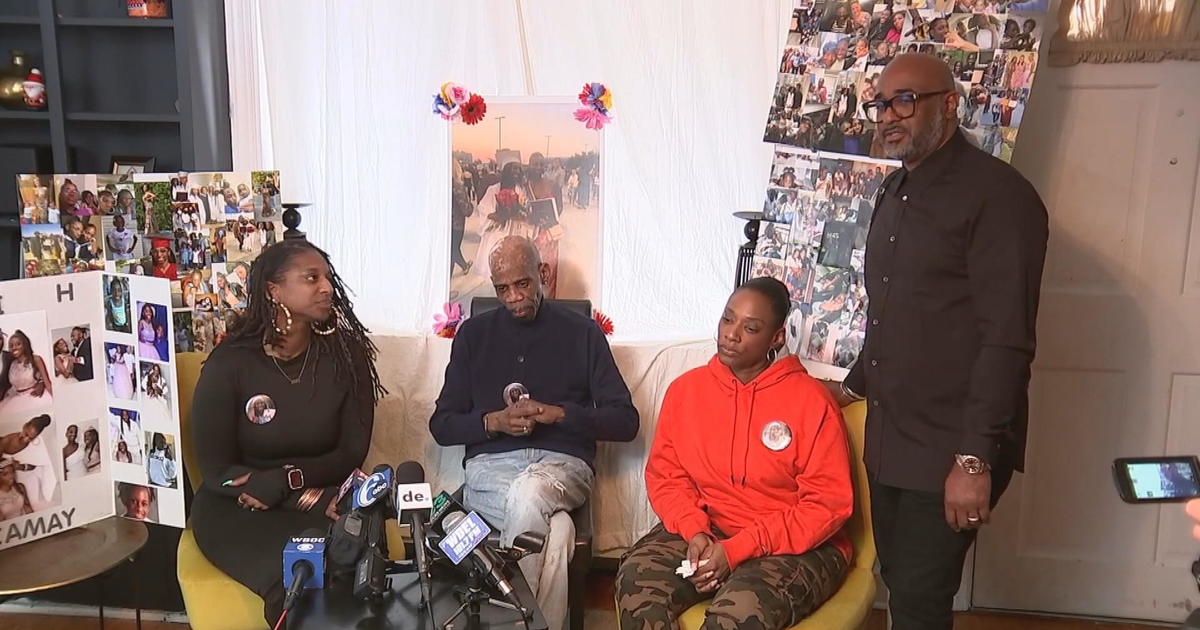EXCLUSIVE: A Potentially Deadly 'Cure' For Common Female Ailment
By Stephanie Stahl
PHILADELPHIA (CBS) -- A warning for women about a common procedure that can turn deadly, the harmful cure. 3 On Your Side Health Reporter Stephanie Stahl has the exclusive report.
Donna's garden will never be the same. Her daughters and husband say her life ended in horrible pain, when she was only 53.
"I miss the laughing the most. She was my best friend, and we did everything together," said Scott Burkhart, Donna's husband.
Like millions of women, Donna struggled with fibroid tumors and had a minimally invasive hysterectomy that was supposed to give her a quicker, easier recovery than traditional surgery.
A device called a power morcellator was used. It shreds tissue, so it can be removed through tiny incisions.
Here's the problem with fibroids, some women have a cancer that can't be detected before surgery. And when a power morcellator is used some cancer cells can be spread inadvertently.
"It is hard to fathom that it would even be used," said Jen Weller, Donna's daughter.
Donna died less than a year after the surgery.
Amy Reed, a mother of six, had the same procedure.
"My prognosis was now worse because of the surgical procedure," said Amy Reed, who like Donna also had an undetected cancer, leiomyosarcoma. It's aggressive and becomes more deadly when it's spread.
"It was very hard initially. It is getting slightly easier, but I am. The level of anxiety is horrible," said Amy.
Amy and her husband shaved their heads together, in preparation for her hair loss from the chemotherapy, that they're hoping will save her life.
The couple, both doctors, are planning to move back to the Philadelphia area where they're from to be closer to family. And they're leading a campaign to ban power morcellation.
"I hope through our efforts we change the standard of care and we force the gynecologist to kind of re-evaluate how they are doing these surgeries because they are devastating," said Amy.
Temple University Hospital has done just that. Dr. Enrique Hernandez says they'd been using a bag with morcellation to contain fragments, to reduce the risk of cancer spreading.
But now with the growing safety concerns Temple has decided to no longer use the device to remove fibroids.
"As we learn more about morcellation and the risks we realize the risks are higher than we thought and we've taken measure to minimize those risks," said Dr. Enrique Hernandez.
Worried that other hospitals won't follow Temple's lead, Donna's family in Reading wants to warn other women. And they're filing suit against those involved with Donna's surgery, including the maker of the device and the hospital.
"I don't know why it happened. I don't know why a morcellator had to be used. I'm angry, sad," said Scott.
"The pain of saying goodbye and the pain watching her in the pain that she was in, it's really hard to move past," said Jen.
The FDA has issued a safety communication discouraging the use of power morcellation for the removal of fibroids and hysterectomies, and is evaluating new warnings or guidelines.
Johnson & Johnson has announced it has stopped selling power morcellators.
WEB EXTRA: Amy Reed, Cancer Patient
Fore more information, visit the following link:
FDA Morcellator Safety Communication- http://www.fda.gov/MedicalDevices/Safety/AlertsandNotices/ucm393576.htm



